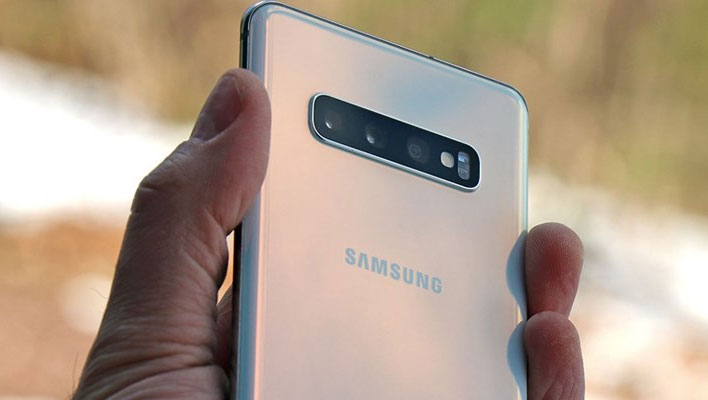Samsung Galaxy S11 Tipped For 108MP Camera As Phone Photography War Heats Up

Camera performance is a point of focus for smartphone makers, and one thing we have seen lately is a growing number of sensors being implemented into flagship handsets—as many as four rear cameras, in some instances. And of course smartphone makers are pushing higher megapixel counts. As it pertains to the latter, rumor has it Samsung's Galaxy S11 could end up with a 108-megapixel sensor.
That would be a gigantic jump in the number of pixels compared to the Galaxy S10+, which wields a 16-megapixel ultra-wide angle lens, 12-megapixel wide-angle lens, and 12-megapixel telephoto lens for rear camera duties (along with a 10-megapixel front shooter for snapping selfies).
The Galaxy S11 has a high probability of using a new 108MP sensor.
— Ice universe (@UniverseIce) November 4, 2019
News of Samsung's potential plans comes from prominent leaker Ice Universe (@UniverseIce on Twitter), who has an excellent track record with this sort of thing. That said. this is not a foregone conclusion. Instead, Ice Universe states is "a high probability" the Galaxy S11 emerges with a 108MP camera sensor.
Will Samsung's 108MP ISOCELL Bright IMX Camera Sensor Find Its Way To The Galaxy S11?
It's not clear if that speculation is rooted in any inside information, or is simply based on Samsung recently introducing its new ISOCELL Bright IMX image sensor for smartphones, which can capture 1080 megapixels.

Samsung announced a 108-megapixel ISOCELL Bright HMX mobile camera sensor back in August
Samsung's new sensor is the first in mobile form to breach 100 million pixels. When Samsung announced the sensor back in August, the company said it would make its debut in an unnamed Xiaomi handset before it finds its way into any Galaxy devices.
"For ISOCELL Bright HMX, Xiaomi and Samsung have worked closely together from the early conceptual stage to production that has resulted in a groundbreaking 108MP image sensor. We are very pleased that picture resolutions previously available only in a few top-tier DSLR cameras can now be designed into smartphones,” Lin Bin, co-founder and president of Xiaomi, said at the time.
The sensor is the first to adopt a large 1/1.33-inch size, allowing it to absorb more light than a smaller sensor. In theory, this should result in clearer photos in poor lighting, with less grain and noise mucking up images.
Assuming things went to plan, Samsung is already mass producing the sensor. Likewise, it's expected Samsung will unveil the Galaxy S11 in February 2020.

